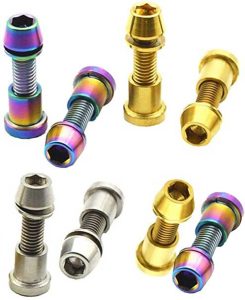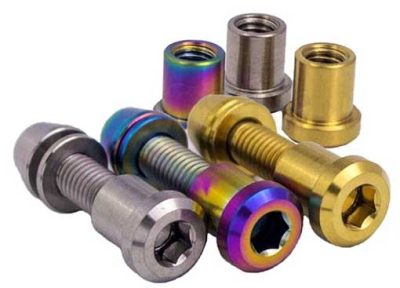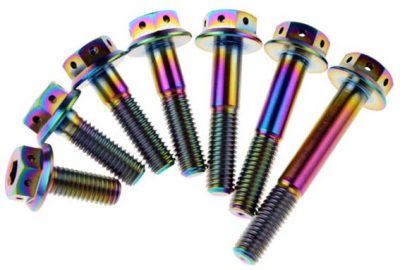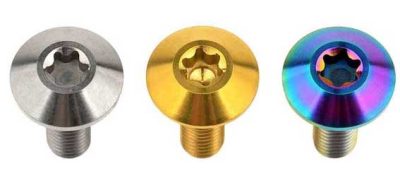Productcategorieën
Productlabels
Titanium standard parts – titanium alloy screw manufacturer
Titanium screws and titanium nuts are tools that use the circular rotating slope and friction of the object, and use the principles of physics and mathematics to gradually tighten the objects and parts.
Titanium standard parts
Producten: titanium screws, titanium bolts, titanium nuts, titanium screws
Materiaal: TA1, TA2, TC4, Gr1, Gr2, Gr5
Specification: M4~M25×L
Standaard: GB/T DINISO
Titanium screws are unique because of their low density, Grote sterkte, corrosieweerstand, high and low temperature resistance, and no magnetism. Widely used in: ruimtevaart, vliegtuigen, bicycle, engine, ar10, bmx, medisch, motorcycle, boot
Titanium screws and titanium nuts are tools that use the circular rotating slope and friction of the object, and use the principles of physics and mathematics to gradually tighten the objects and parts.
Titanium standard parts
Producten: titanium screws, titanium bolts, titanium nuts, titanium screws
Materiaal: TA1, TA2, TC4, Gr1, Gr2, Gr5
Specification: M4~M25×L
Standaard: GB/T DINISO
Titanium fastener classification
1. Titanium screws: round head screws, self-tapping screws, hexagonal screws, countersunk screws, slotted screws, square head screws, double head screws, non-standard screws, fastening screws, standard screws, flat head screws
2. Classification of titanium bolts:
Hexagon bolts, square neck bolts, round head bolts, countersunk head bolts, carriage bolts, gasket combination bolts, various instrument lathes
Bolts, special-shaped non-standard bolts: galvaniseren, aluminum oxidation (anodic decomposition), chemical industry, watch industry, medicine, breeding, electronic hardware, plastics and other industries.
3.Titanium nuts, hexagonal nuts, self-locking nuts, ring round nuts, knurled nuts, slotted nuts, hexagonal nuts for precision machinery, special-shaped non-standard nuts.
Titanium standard parts application
Titanium screws are an indispensable industrial necessity in daily life: Small screws used in glasses, elektronica, enz.; General screws for televisions and electrical products; Transportation equipment, airplanes, auto's, enz. are used for both large and small screws.
The density of titanium alloy is generally about 4.5g/cm3, which is only 60% of steel. The strength of pure titanium is close to that of ordinary steel, and some high-strength titanium alloys exceed the strength of many alloy steels. Daarom, the specific strength (strength/density) of titanium alloy is much higher than other metal structural materials, and screw parts with high unit strength, good rigidity and light weight can be produced. Momenteel, titanium alloys are used in aircraft engine components, skeletons, skins, fasteners and landing gear.
Titanium alloy exhibits superior corrosion resistance in harsh environments, which is the main reason why it is used in chemical equipment manufacturing. It has good high and low temperature characteristics, non-magnetizability and low thermal conductivity and thermal expansion coefficient. The downside is that titanium screw fasteners are very difficult to process. Bovendien, when the threaded fasteners are installed and locked, the threads are easily scratched or stuck.

Titanium screws, titanium nuts

Titanium Bolts Button Allen Hex Head M6 X 12 15 18 20mm

Titanium fasteners used in boats

Titanium screws are used in aviation and medical equipment
Neem contact met ons op
Wachten op uw e-mail, wij zullen u binnen antwoorden 12 uur met waardevolle informatie die u nodig had.
 English
English العربية
العربية 中文(漢字)
中文(漢字) Čeština
Čeština Dansk
Dansk Nederlands
Nederlands Suomi
Suomi Français
Français Deutsch
Deutsch Italiano
Italiano 日本語
日本語 ಕನ್ನಡ
ಕನ್ನಡ 한국어
한국어 Português
Português Русский
Русский Slovenčina
Slovenčina Español
Español Svenska
Svenska Türkçe
Türkçe





